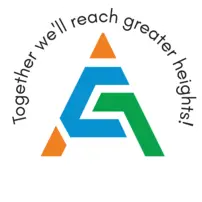Careers in Mathematics
by Venkatesh Raman
Mathematics is a subject students either love or hate. Very few are in the middle path. I have even heard IAS officers proudly say in public that they were never good at mathematics. The subject is also (mis)understood by common public as a subject that is all about arithmetic and calculations. Whatever it is, there is no escaping of at least some level of mathematics for almost any career in life.
In reality, mathematics is a language. Consider the following puzzle. Five apples and eight mangoes costed ₹270. Cost of a mango is half the cost of an apple. What is the price of an apple?
You maybe able to find the solution by doing some random guesses. But if you cast the problem in the language of algebra, you can solve it as follows.
Let A be the cost of an apple, and M be the cost of a mango. Then, we can write what is given as
5A + 8M =270, and 2M = A, from which you can see that
5A + 4A = 270 and you figure that A, the cost of an apple is ₹30.
So algebra is a language which helped us solve the problem more systematically. So higher mathematics is all about building such languages and theories.
World saw the importance of mathematics and basic sciences in the post-war industrialisation era. Hence much of higher class mathematics (calculus and trigonometry, in particular) is influenced by Physics and Engineering. If you have an interest in applying mathematics to solve problems, in my view, Engineering continues to be the broad area you should specialise in, which still has a wide range of career opportunities. You should, of course, choose the specialisation based on your other interests, and the institution you go to. The institution is more important than the specialisation.
Math and Computer Science - Some 5yr MSc integrated courses: The last 50 years of development in information technology and the related developments in biology, economics and finance, has brought out the importance of some other areas of mathematics including number theory, linear algebra, probability and statistics, combinatorics, graph theory and logic. These areas are applied in communication, game theory, machine learning and artificial intelligence, statistical modelling in finance and weather prediction. Almost all IIT (Indian institute of technology)s have (5 year) MSc integrated programs (after 12th) specialising in theoretical computer science. In Tamil Nadu, Anna University and PSG College of Technology Coimbatore, among others, have mathematics department offering theoretical computer science programs. In fact, PSG College of Technology has several well-run 5 year MSc integrated programs run by their mathematics department, including in data science, software engineering. They are starting a new program in Cyber Security pretty soon.
Some 4yr integrated programs in basic sciences In the last decade or so, the central government has opened new institutes for basic sciences, called IISER (Indian Institute of Science Education and Research). These are currently in Mohali, Pune, Thiruvananthapuram, Tirupathi, Bhopal and Kolkata. Check out also NISER (National institute of science education and research) at Bhubaneshwar. These institutes and the century old Indian Institute of Science (IISc) offer excellent integrated Master's programs in basic sciences in general, including mathematics. All of them have their own entrance exams and you should check them out from their website.
Some great 3yr undergraduate programs If you really want to pursue higher studies and possibly an academic career, you may want to try the BSc, MSc, PhD path. Chennai Mathematical Institute (CMI) and Indian Statistical Institute (ISI) that has centres in Bangalore, Delhi and Calcutta, are prestigious institutes offering high quality mathematics programs at Bachelor's level. While CMI has computer science or physics as additional subjects, ISI focuses more on statistics. ISI also has BStat and BMath programs. The entry to these programs are very competitive. More importantly, their programs are also very demanding, and so you may want to be sure of what you are getting into before you try them. These are primarily for those who are sure of pursuing higher studies in mathematics.
At the post-graduate (or PhD) level, institutes like Tata Institute of Fundamental Research (TIFR) at Mumbai and Hyderabad, The Institute of Mathematical Sciences (IMSc) at Chennai, Harish Chandra Research Institute (HRI) at Allahabad are some of the best institutes for research, apart from the other institutes we listed above that also offer undergraduate programs. You may also want to check out some specialised 2year MSc programs (after BSc) at IIT Bombay (in applied statistics and informatics) and at Chennai Mathematical Institute (on data sciences). Also IITs and IISc have 2 year Master's followed by PhD programs as well. You can also try them after a Bachelor's in some other good university.
In summary, Mathematics offers tremendous career opportunities. But it is important to understand various programs and specialisations, and tie them with respect to your own broad interests before making your choice. In particular, the author is available for individual counselling as your choices will depend a lot on your passion, background and goals. Send your specific query to the email address mentioned in the welcome message.
Venkatesh Raman
Professor at the Institute of Mathematical Sciences, Chennai.
(PhD in Computer Science, and Math from University of Waterloo, Canada,
MSc (Mathematics) from IIT Kanpur,
BSc (Mathematics) from St. Xavier's college affiliated to Madurai Kamaraj
University)

